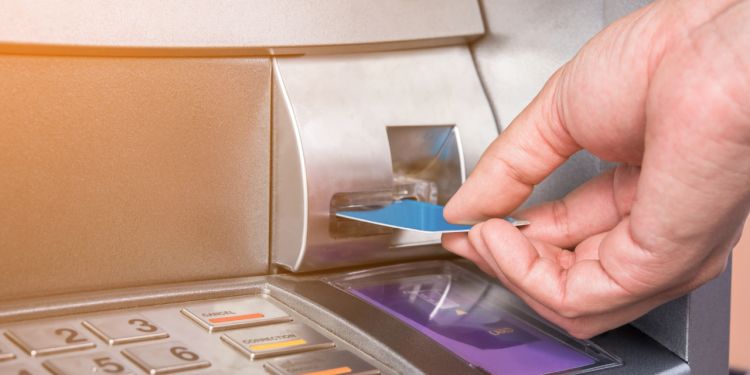
To live anywhere in the world, you have to have money. And the safest place to put it is in a bank. Naturally, if you're going to live in the Netherlands, you'll need to open a Dutch bank account, although it's not necessary. However, it's in your best interest to, as it'll be more affordable and convenient. In this article, we'll discuss the types of bank accounts available and how to apply for them.
Types of bank accounts in the Netherlands
Dutch bank accounts are pretty much the same as they are in the rest of the world. You have two choices: checking or savings account.
Within the checking option, banks usually have some subcategories, such as student accounts. If you're not sure which to choose, just have a chat with a bank teller or utilize online support services. They're great at assisting you to choose a bank account that's right for your financial situation.
For savings accounts, the packages will depend on the particular bank. So make sure you shop around to determine which one's the best for you.
If you're here with your partner, you also have the option to open a joint bank account. This can make it easier for both of you to manage your finances.
Checking accounts
A basic checking account is called a betaalrekening, or current account. With a checking account, you'll get a debit card (pinpas or betaalpas), which you can use to make payments and withdraw cash at ATMs. Do note that this also means it's possible to overdraft with some banks (called rood staan), so always make sure you have enough money in your account before withdrawing. If you want to overdraft purposely, you should also know that it's associated with high interest rates, so only overdraft in emergency situations if possible.
With a checking account, you can set up direct debits and standing orders. Direct debits are where you authorize a party to deduct different amounts regularly, such as for your health insurance bills. And standing orders are where you authorize a party to deduct an amount regularly, such as for your gym membership. To set up either, the party receiving the payments must be able to process SEPA direct debits, as this is what the Netherlands uses. You'll then need to enter the BIC (bank identifier code) and IBAN (international banking account number).
You should expect that most banks in the Netherlands will charge a monthly maintenance fee. Make sure to read the fine print so you don't have any unexpected surprises.
Savings accounts
There are two types of savings accounts in the Netherlands: standard and time deposit.
With a standard savings account, you'll earn interest, and you can withdraw your money at any time. You can keep it there for as long as you want as well, as there are no minimum or maximum terms associated with this type of savings account.
A time deposit savings account also lets you earn interest at higher rates. The longer you keep your money in the account, the higher the interest rate. However, you can't withdraw your money until the agreed-upon term is up. Terms can go from as short as one month to as long as seven years, so carefully weigh your options to determine the right period for your situation.
Benefits and other information about Dutch bank accounts
Banking has never been easier. Today, you can download apps that let you check your statements in a flash. Some banks even have money management tools. For instance, ABN Amro's app allows you to gain insights into your finances, such as predictions and fixed costs.
Card reader in the Netherlands
With your bank account, you'll also get a card reader. This will be needed for online banking for extra security. Instead of putting in a PIN number, you insert your bank card into the reader. You'll have to input a string of numbers from your computer. If it's correct, the card reader will give you a code to put into your browser.
While this may seem a bit annoying at times, it's worth a little extra hassle. It's much harder for people to steal your bank card and use it.
In recent years, some banks have made it easier to make payments by bypassing the card reader. You can just scan a QR code and enter your PIN from your smartphone app, which negates the hassle of carrying a card reader.
Bank cards in the Netherlands
Note that banks will charge a small fee for your physical bank card. So even if you share an account with your partner, if both of you have individual cards, you'll be charged two times the amount for the bank cards. You'll also have to pay for any additional debit cards you want.
Many expats aren't used to the practice of paying for bank cards, so they'll be taken aback when they hear about it. However, all Dutch banks do this, so if you're thinking of leaving a bank just because of this, then it's not a good idea.
The good news is, the fee is only a few Euros a month, so it'll be a drop in the bucket.
Contactless payments in the Netherlands
When you shop, you'll be pleased to know you can use the RFID-enabled payment methods (contactless) for purchases under €25 for most banks. That way, you won't have to put your card in the machine, nor will you have to enter your PIN. Just hold your card against the machine for a few seconds, and your transaction will go through.
You can also use contactless payments for higher amounts than €25. However, you'll need to enter your PIN code to confirm the transaction. You'll also need to enter your PIN if you've used your debit card contactless five times. The exception is if you're paying with your phone app; you won't need to enter your PIN at any time if so.
ATMs in the Netherlands
You'll be happy to know that there are no fees for using ATMs (geldautomaten) across the country or even in other countries. So long as the machine accepts Maestro cards (or PLUS or Cirrus cards), and you're withdrawing Euros, you won't be charged extra. However, do note that you need to use official ATMs for this to ring true, as the blue ones in popular tourist locations will charge high fees.
In the past, individual banks had their own ATMs, and you could use any of them without being charged a fee. However, there are fewer and fewer ATMs now, with the number decreasing by 33% in 2.5 years back in 2020. As of the same year, there were less than 5,000 ATMs in the nation now, and they're all owned by Geldmaat; their ATMs are easily recognizable since they're bright yellow.
The operating hours are shorter as well. Most are only open from 6:00 am until 11:00 pm to try and deter robberies. You may be able to find some open until 2:00 am in places with a more vibrant nightlife. There are also Geldmaat stores that are open from 7:00 am until 10:00 pm. You can deposit cash and deposit/withdraw coins at these stores.
Online transactions in the Netherlands
Chances are, you'll want to make some online purchases and payments. The good news is, that it's very easy to do with a Dutch bank account. Most transactions are made through iDEAL; just look for their logo. You can use it to scan the QR code with your bank's smartphone app and then make payments there. Do note that the European Payments Initiative (EPI) bought iDeal in 2023 and the Netherlands will be switching to a new system called Wero in 2025. This is an effort to have a convenient and uniform payment system in Europe.
Another popular method of online payments is Tikkie. This is an app made by the Dutch bank company ABN AMRO, but you can use it as a non-customer. After downloading the app, you can send and receive requests for payment of various amounts. In fact, many use it for transactions as small as €1.
International money transfers in the Netherlands
As an expat, you probably deal with other currencies other than the Euro. In that case, you might be wondering about international money transfers.
Many people choose to complete these transactions through their own banks. You'll need the BIC, IBAN, and SWIFT codes for your bank. If you're transferring between banks in Europe, you won't pay additional fees, and it should take one to two working days to get your money. However, the exchange rate your bank offers may not be great, and they might charge you a transfer fee.
For this reason, many people look outside of their banks for international money transfers. Some popular choices are Wise (previously known as TransferWise) and Revolut.
Formalities of opening bank accounts in the Netherlands
In the Netherlands, the leading banks are ABN AMRO, ING, and Rabobank. Some alternatives include bunq (digital banking), SNS Bank, ASN Bank, and Triodos (the last two are good for ethical banking). Most expats in the Netherlands choose ABN AMRO and ING because they have good English portals and English-speaking customer service agents, which really helps when you don't know any Dutch yet. However, digital banks are becoming more and more popular, as they have minimal (or no) fees, and you don't need to go to a physical branch to set up your account.
In general, to open a bank account, you'll need:
- Proof of an address
- BSN number (Dutch Social Security number)
- Proof of valid residence (such as a residence permit)
- Proof of income (unless you're opening a savings account)
- Valid phone number (if you're staying over four months)
Without the above things, you won't be able to get a bank account. And if you're a new client, it's common for banks to check your credit history. This means they'll register you with the BKR (Bureau Krediet Registratie).
You can either make an appointment or walk into the local branch of your chosen bank. We recommend you make an appointment so you won't have to wait to be seen. Most banks also offer online services, so you can try that too.
Once you have gone through the whole process of applying, you should receive a letter with your bank card in the post within a few days.
Debit vs credit cards in the Netherlands
In the Netherlands, rarely anyone uses credit cards, which is strange when you consider how tech-savvy Dutch banks are. For the most part, everyone uses either cash or their debit cards.
If you find you really need a credit card, then you can definitely apply for one. However, it's quite a rigorous process. You have to have proof of income, plus the limit is low, so you might not be able to make the huge purchases you wanted to. There's also a monthly spending limit, and you need to repay the debt amount within a certain amount of time. In addition, expect an annual fee for the credit card. Not to mention, you may not be approved for a credit card right away. Sometimes, the bank can monitor your spending habits and income to determine whether or not you'd be a good candidate for a credit card.
The most commonly found cards accepted here are Visa and Mastercard. You'll rarely see American Express accepted here. Banks will also issue their own credit cards. For instance, ABN AMRO has a regular and Gold Card.
What to do if you lose your debit card in the Netherlands?
Your debit card might get lost or stolen, and it's of the utmost importance that you take the right steps to protect your finances.
If you've realized that you don't have your debit card in your possession, call your bank immediately. They'll then cancel your current card and send out a new one. You should receive it in four to five working days.
Loans in the Netherlands
Like in most other countries, you'll be able to take out loans at your bank in the Netherlands. They include personal loans (both secured and unsecured), variable-rate loans, and fixed-rate loans.
More importantly, you can get mortgage loans (hypotheek) too. You'll be pleased to know that although your bank will offer a discount for getting a mortgage through them, you can shop around and get a mortgage elsewhere if you wish. The types of mortgages available are the linear mortgage (lineaire hypotheek) and annuity mortgage (annuiteiten hypotheek). It's highly recommended that you consult with a mortgage advisor, especially one that specializes in expat services. They'll be able to find you the best deals and walk you through the property purchase process in the Netherlands.
We do our best to provide accurate and up to date information. However, if you have noticed any inaccuracies in this article, please let us know in the comments section below.












Comments